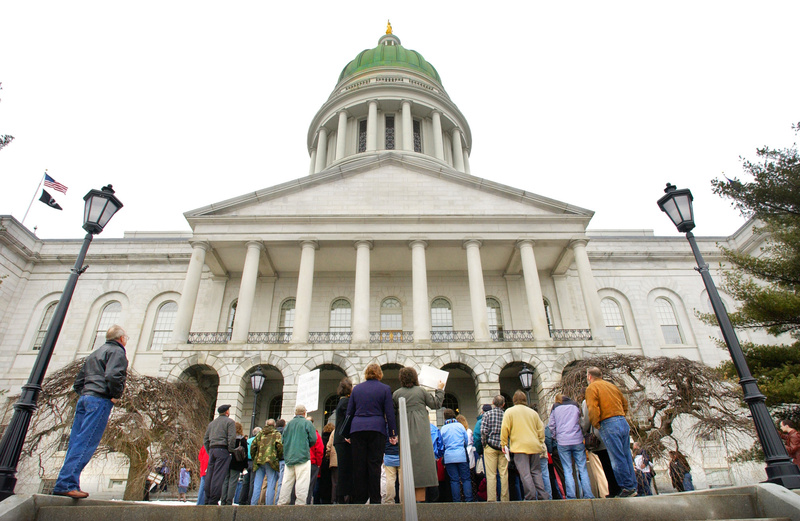Budgets are as much about politics as they are about numbers. Gov. LePage’s budget proposal, which requires approval by the Legislature, has plenty of both, with a significant change to municipal revenue sharing falling in both arenas. We believe there’s a political solution to the revenue sharing numbers problem.
But first, the numbers: Gov. Le-Page wants to give towns and cities more dollars for revenue sharing than last year ($94 million vs. $90 million). But he wishes to forgo offering a percentage of state revenue to provide it, in favor of a fixed amount.
The advantage, his administration claims, is that towns and cities will get a predictable figure to budget.
Towns and cities, though, see this differently, because if revenues rise, getting a percentage of total revenue could increase their take. A fixed number may not.
And if you cut their revenue sharing, towns and cities say, they are left with only one way to raise money: property taxes, which are already high enough. (This is, from our perspective, a correct observation.)
It is this latter point that was the genesis of revenue sharing in the first place.
The state recognized that its tax base was broader than those of towns and cities, and sharing the revenue from that base was not only equitable, but also an incentive to make it grow.
Yet changing from a fixed percentage to a fixed payment still makes sense. What is not sensible is ignoring the fact that reducing the ability of a town or city to raise revenue through the state could lead to increased property taxes.
Nobody wants to hear this in our current “live within our means” political environment, but the prospect is unavoidable. A solution to avoiding this unpleasant scenario is giving towns and cities more ways to raise revenue. One that seems obvious to revisit is a local-option sales tax, an evergreen policy issue around the State House that has had plenty of chances, but so far no success.
It has its drawbacks, certainly.
For example, local-option taxes could brew unhealthy competition among communities to attract retail business based on differing tax rates. And the Legislature would have to be careful not to extend the power to levy taxes without serious thought.
But the policy makes sense in light of the potential changes to revenue sharing.
Service center communities such as Augusta, Waterville, Lewiston and destination locales such as Portland, Bar Harbor and Rockland would likely benefit from the ability to raise tax revenue from the visitors who spend within their boundaries, but do not live within them.
And if the Legislature — which has to allow the creation of local option taxes — wants to attach them directly to local property tax relief, we would support that condition without reservation.
This should also hearten Gov. Le- Page, if communities in Maine are, in fact, at risk of becoming insolvent, as he claimed in his budget speech.
Yes, proposals for local-option taxes have been heard by the Legislature, time and again.
With revenue sharing poised to change, they should be reconsidered as a political solution to problematic budget numbers.
Send questions/comments to the editors.



Success. Please wait for the page to reload. If the page does not reload within 5 seconds, please refresh the page.
Enter your email and password to access comments.
Hi, to comment on stories you must . This profile is in addition to your subscription and website login.
Already have a commenting profile? .
Invalid username/password.
Please check your email to confirm and complete your registration.
Only subscribers are eligible to post comments. Please subscribe or login first for digital access. Here’s why.
Use the form below to reset your password. When you've submitted your account email, we will send an email with a reset code.